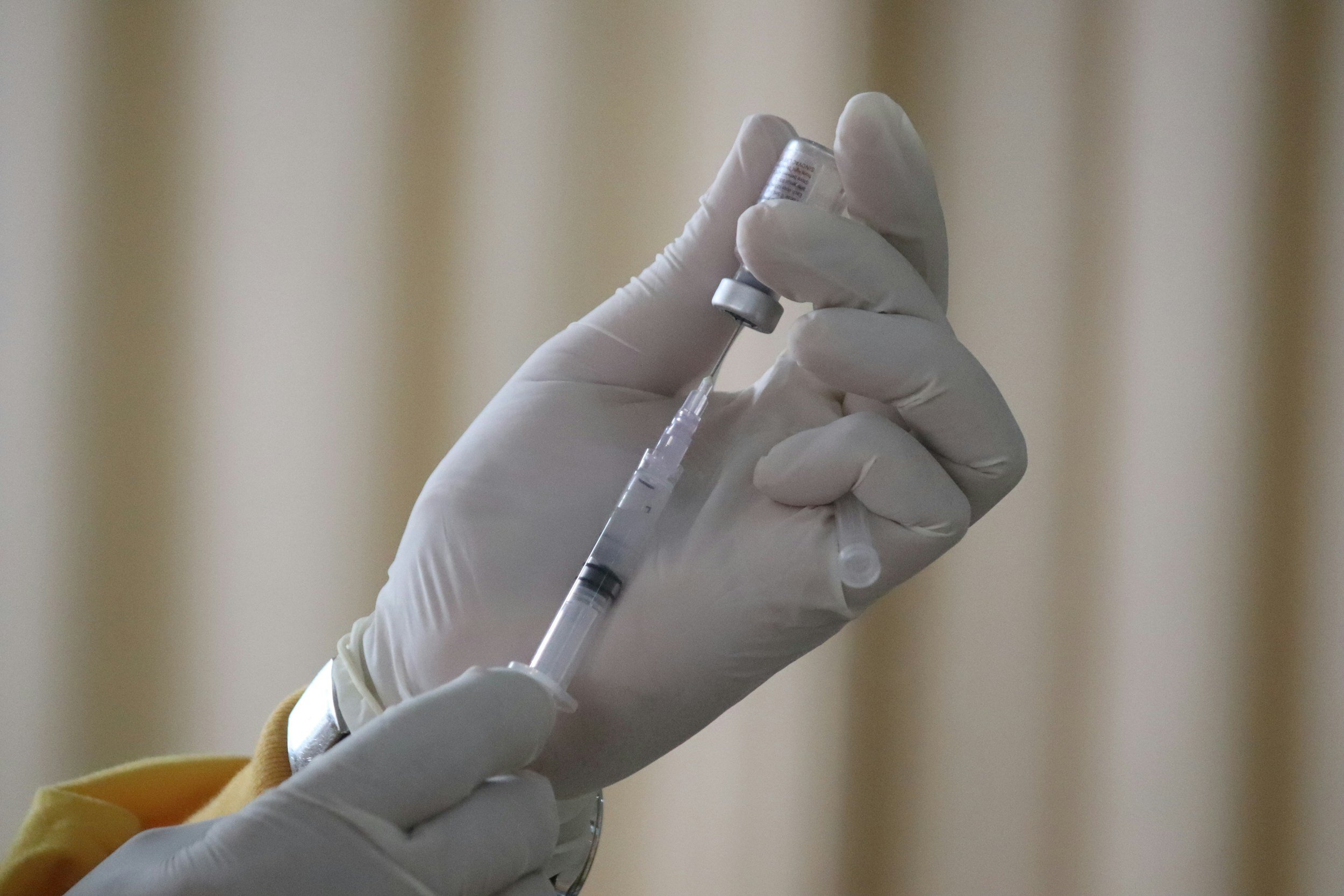
Why Lyme Patients React to Heat and How Far Infrared Can Be Used Without Triggering Flares

Lyme Basics: What Every Patient Should Know

How to Survive the Holidays with Lyme: A Gentle Guide for Low-Energy Days
The holidays are beautiful, nostalgic, and emotionally charged — but for those living with Lyme disease or chronic illness, this season can also feel physically demanding and overwhelming. There’s pressure to be festive, social, productive, and endlessly available, yet your body may only allow a fraction of what others expect. Fatigue, pain, cognitive overload, sensory sensitivity, food restrictions, travel demands, and the unpredictability of symptoms make December complicated. And that’s okay. The holidays can still hold meaning, warmth, and joy; they just may look different — slower, softer, and more intentional.

When the Holidays Bring More Than Cheer: Hidden Mold Exposure During the Season

Why Many Lyme Patients Go Dairy-Free

Could Leucovorin Support Healing in Lyme Disease?What Autism Research, MTHFR, and Chronic Illness Have in Common
Could leucovorin (folinic acid) help Lyme patients with MTHFR mutations, detox struggles, and neuro symptoms? Here’s what autism research reveals.

Lyme, PTSD, and Veterans: The Overlooked Connection
Veterans are often told their symptoms are “just PTSD,” but what if something else is going on? Lyme disease and PTSD share strikingly similar symptoms — sleep problems, brain fog, anxiety, and depression. For many veterans, this overlap leads to misdiagnosis and years of unnecessary suffering. Understanding the connection is the first step toward proper care.

Grieving Without Collapsing: Managing Loss While Living with Lyme Disease
Grief is never easy, but for those of us living with Lyme disease or chronic illness, it can take an even heavier toll. Stress hormones, sleepless nights, and emotional pain can trigger flares or even relapses. It’s not weakness — it’s biology. That’s why caring for your body while you mourn matters. Gentle practices like hydration, rest, small rituals, and early flare awareness can help you carry loss without losing your own footing. Taking care of yourself in grief isn’t selfish — it’s survival.

How to Tell if a Health Coach Is Lyme-Literate
Finding the right health coach can make all the difference when managing Lyme disease. Not all coaches understand the complexities of tick-borne illness, and choosing one without Lyme-literate experience can leave patients feeling unsupported. Here’s how to recognize the qualities of a truly Lyme-literate health coach so you can build a safe, effective partnership on your healing journey.

Can Pets Bring Ticks into Your Home?
Pets can unknowingly bring ticks into your home, putting you and your family at risk for Lyme disease. Even if dogs or cats don’t show symptoms, ticks can crawl from their fur onto bedding, furniture, or humans — especially if pets sleep in your bed. Daily tick checks, preventive care, and simple hygiene steps can help keep both pets and people safe.

Flare vs. Herx: How to Tell the Difference
Flares and Herxheimer reactions can look alike in Lyme disease, but they aren’t the same. A flare is triggered by stress, lifestyle, or environmental factors, while a Herx happens when treatment kills bacteria and releases toxins. Learning to spot the difference helps you manage symptoms and recover with more confidence.

CalmAF + Zembrin®: Why This Community Favorite Stands Out for Lyme-Related Anxiety
Anxiety is one of the most disruptive symptoms of Lyme disease — and it often strikes without warning. Many in the Lyme Advise community have turned to CalmAF by Aegis Formulas, a dissolvable strip powered by Zembrin®, for quick, non-drowsy relief. Backed by research showing its ability to calm the brain’s stress response, CalmAF has become one of our community’s most trusted tools for managing flare-related anxiety.

MCAS vs. Allergies: What’s the Difference?
MCAS (Mast Cell Activation Syndrome) and allergies can look almost identical — flushing, hives, congestion, and food reactions. But while allergies have specific, testable triggers, MCAS causes unpredictable, multi-system reactions that often test negative on allergy panels. Understanding the differences helps patients and providers avoid misdiagnosis and find the right treatment.

Babesia and Rib Pain: The Overlooked Coinfection Symptom
Rib pain is a lesser-known but common symptom of Babesia, a tick-borne parasite often found alongside Lyme disease. This malaria-like infection disrupts red blood cells, strains the spleen and liver, and triggers oxygen stress that can lead to aching, pressure, or tightness in the ribcage. Recognizing the connection between Babesia and rib pain can help patients find answers sooner, receive proper treatment, and explore supportive strategies for relief.

Why Lyme Is a Clinical Diagnosis: Understanding Testing Limitations and Symptom-Based Evaluation
Lyme disease is one of the most commonly misdiagnosed illnesses, in part because lab tests are unreliable. The bacteria can hide in tissues, change forms, and even suppress the immune system — making detection difficult. That’s why Lyme is primarily a clinical diagnosis, based on symptoms, history of tick exposure, and physician expertise. Relying on tests alone risks delays, misdiagnosis, and worsening health, while a clinical approach ensures patients get the timely care they deserve.

Hydration & Electrolyte Balance: Essential Tools in Your Lyme & Mold Detox Journey
If you’re dealing with mold illness, Lyme disease, or chronic infections, hydration isn’t optional — it’s medicine. Proper hydration and electrolyte balance can make the difference between feeling weighed down by toxins and supporting your body’s ability to heal.

Lyme Disease in School-Aged Children: Symptoms to Watch For and How to Support Students

Hurricane Season Preparedness for Those with Chronic Illness or Disability
Learn how to prepare for hurricane season when living with chronic illness or disability. This comprehensive guide covers medications, power needs, emergency kits, evacuation tips, and more—so you can stay safe and supported during severe weather.

Why a Lyme Vaccine Won’t Be the Whole Answer
The idea of a Lyme vaccine sounds promising—and for many, it feels long overdue. But protection against one bacteria isn’t the same as protection against the full spectrum of tick-borne illnesses. In this article, we explore what the upcoming Lyme vaccine can and can’t do, why prevention and education are still critical, and how history reminds us that patient voices must stay at the center of the conversation.

Low White Blood Cell Count (Leukopenia) in Heartland Virus: What You Need to Know
Heartland virus is a serious, emerging tickborne illness spread by Lone Star ticks, with most reported cases in the Midwest and Southern U.S. Unlike bacterial infections like Lyme disease, this viral illness can cause dangerously low white blood cell counts (leukopenia), leaving patients vulnerable to secondary infections and complications. In this post, we explore how Heartland virus affects the immune system, why leukopenia occurs, and what steps you can take to protect yourself from this little-known but serious threat.
